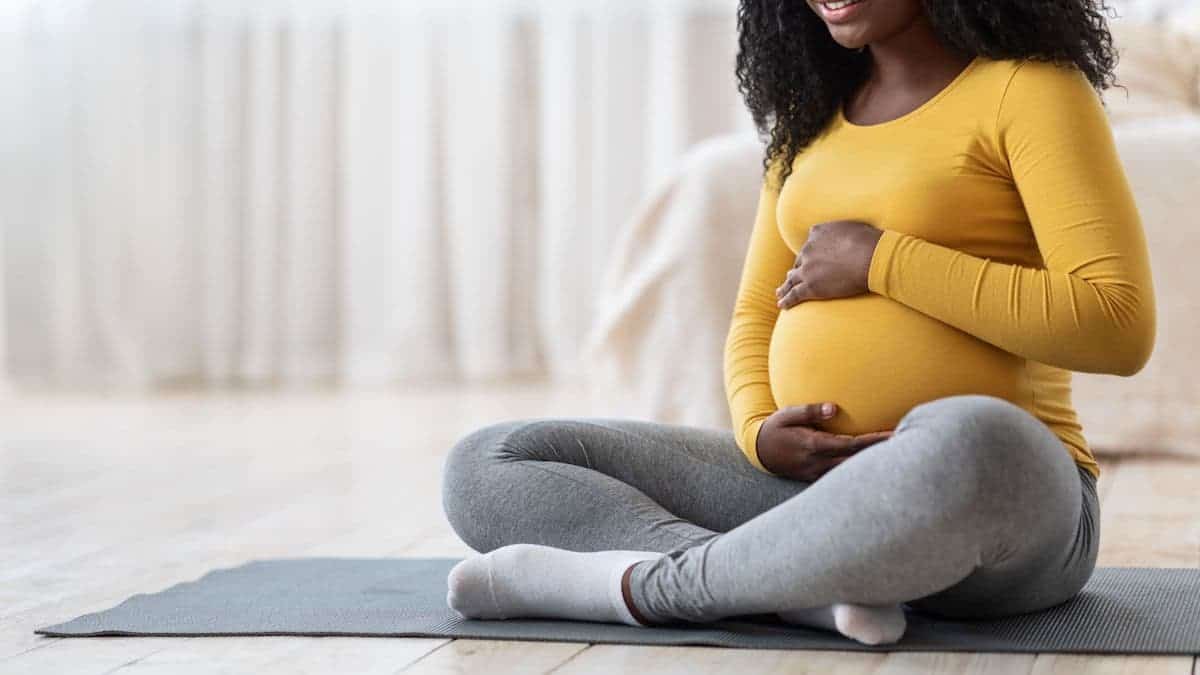Pregnancy is a time of anticipation and hope as you look forward to the arrival of your little one. It's also a time of major changes for your body, and these changes can lead to unpleasant symptoms, such as pain, during pregnancy. The good news is that there are ways to mitigate discomfort, so you can feel better through each trimester. Physical therapy for pregnancy can benefit you in many ways. In this post, we'll dive into how.
How Does Pregnancy Affect a Person’s Body?
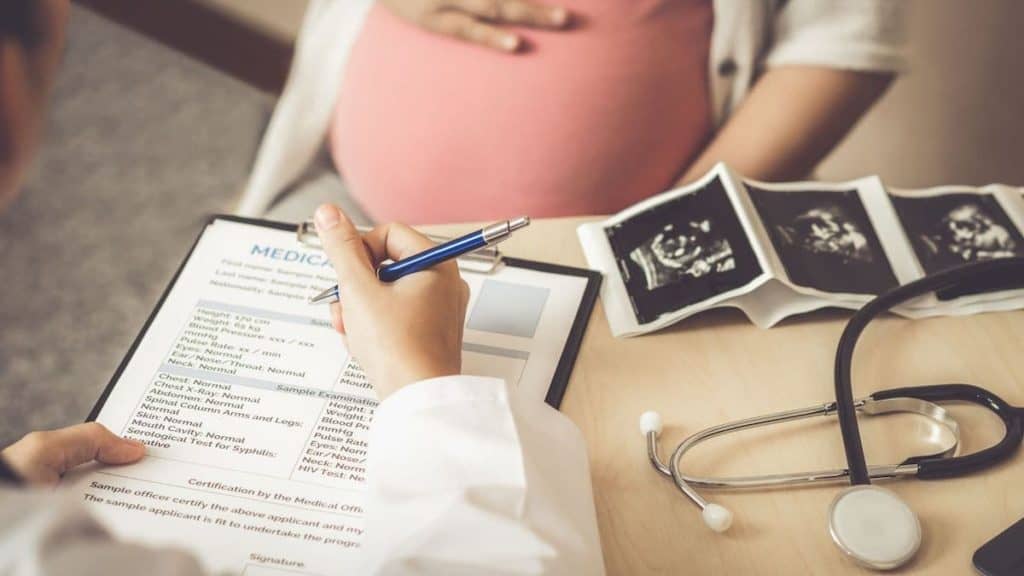
Pregnancy affects many parts of the body. Here are some of the biggest changes that can contribute to pain during pregnancy:
- Uterine expansion: As your baby grows, your uterus expands to accommodate it. This can lead to aches and pains in the abdomen, groin, thighs and back.
- Increased pressure on the body: A baby's growing head pushing against the pelvis can result in backaches and pelvic bone pain. If the uterus compresses the sciatic nerve, you may develop sciatica, a shooting pain that travels from the buttocks or lower back down the leg. The pressure exerted by the baby can also push on the bladder and the pelvic floor muscles that provide support. This may lead to pelvic floor dysfunction that results in urinary leakage or an increased need to urinate.
- Changes in body weight and shape: Your growing belly can put strain on the spine, particularly if it affects your posture, causing you to slouch. In some cases, it can lead to back pain during pregnancy. Weight gain can also increase stress on your knees, resulting in discomfort.
- Changes in how the body processes calcium: During pregnancy, your need for calcium rises. For some people, this can lead to muscle spasms and cramps in the legs and feet.
- Swelling: Hormonal changes due to pregnancy can lead to swelling of the ankles and hands, which may reduce mobility.
- Hormonal changes: While you're pregnant, levels of hormones called relaxin and progesterone arise, loosening the joints and the ligaments that hold bones together. You could experience pain in your hips or back when this occurs.
Is Physical Therapy Safe During Pregnancy?
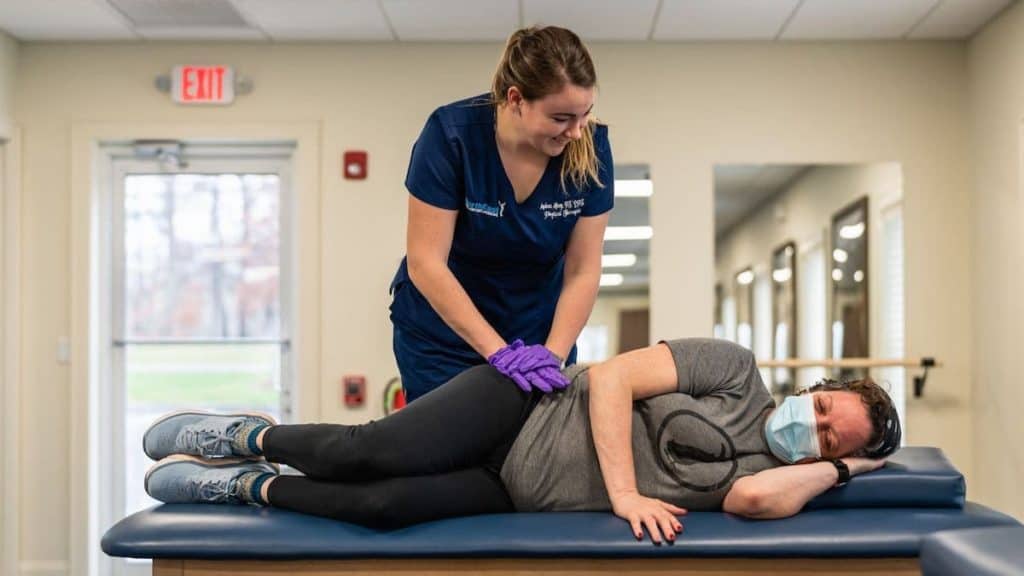
Yes, prenatal physical therapy is safe and effective at reducing pain during pregnancy. The key is to find a physical therapist with experience working with pregnant people to guide you through safe exercises during pregnancy and administer other therapies to ease discomfort.
7 Ways Physical Therapy Can Help During Pregnancy
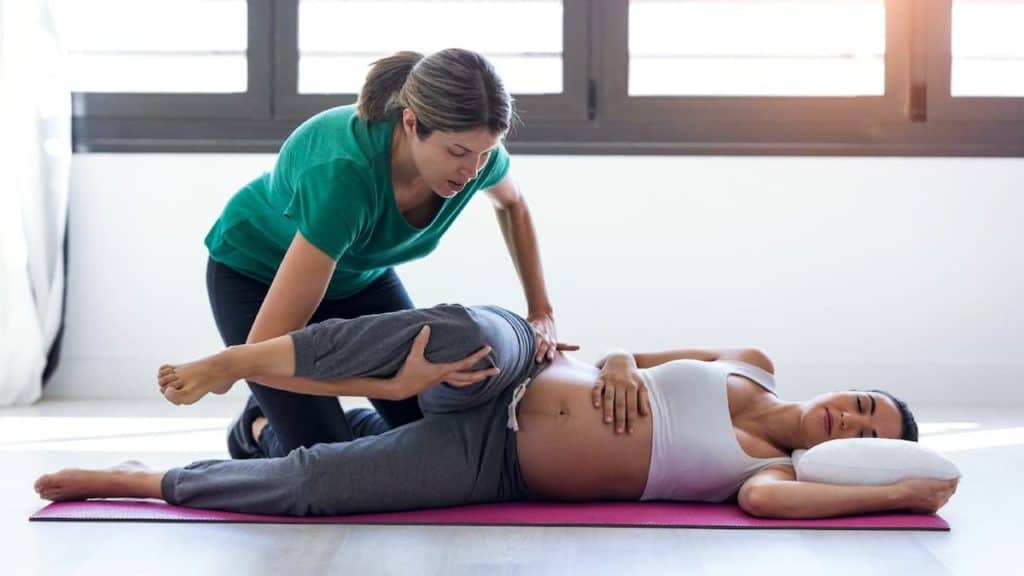
Attending physical therapy during pregnancy can pay off in a variety of ways. During your initial consultation, your prenatal physical therapist will discuss your concerns with you, set goals for therapy and develop a personalized treatment plan to achieve them. Some potential benefits of prenatal physical therapy include the following.
1. Back Pain Relief

As previously explained, back pain during pregnancy can arise due to changes in your posture and the pressure exerted on your spine. Your growing belly can shift your spine out of alignment, resulting in pain in the shoulders, neck and back. For roughly a third of pregnant people, this discomfort may continue, even after their babies are born.
Physical therapists can employ spinal manipulation techniques to return your spine to proper alignment and ease discomfort. They can also lead you through safe exercises to strengthen the muscles needed for balance and strength. You can continue performing these exercises at home throughout the week for increased effectiveness.
Scientific research supports the back pain relief benefits of physical therapy during pregnancy. A systematic review of 1,284 articles conducted by the Journal of Orthopaedic & Sports Physical Therapy concluded that a regimen of safe exercises during pregnancy developed by a physical therapist can reduce low back pain and lower the likelihood of symptoms persisting after delivery.
2. Regain Muscle Strength
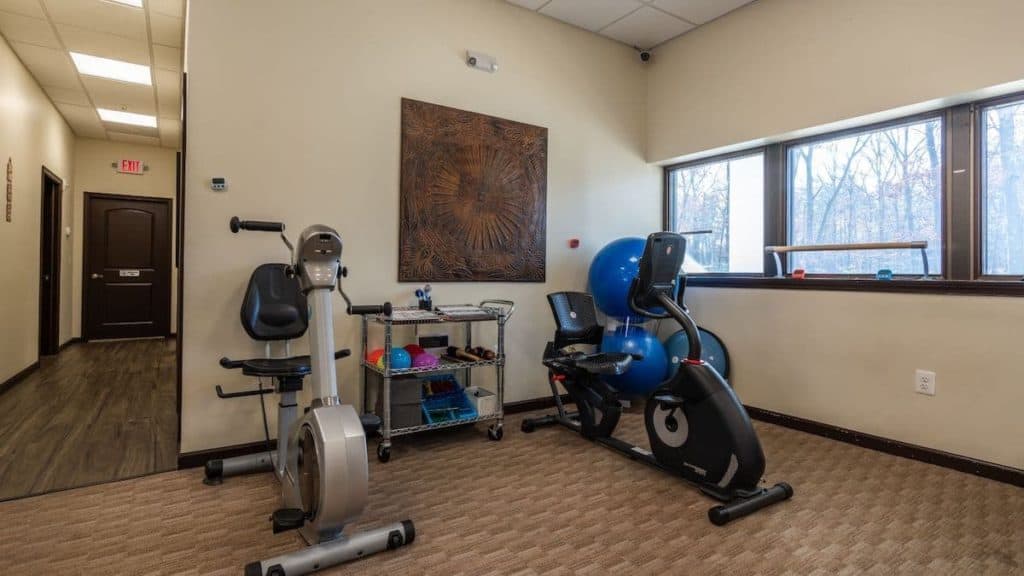
Around 83% of pregnant people develop Diastasis recti during pregnancy or in the 12 months after delivery. This condition occurs when the abdominal muscles separate due to pressure exerted on them during pregnancy. Symptoms associated with Diastasis recti include:
- Bulging above or below the belly button
- A soft or jelly-like feeling near the belly button
- Visible coning or doming of your abdominal muscles when you tighten them
- Difficulty with lifting objects or walking
- Pelvic pain, hip pain, or low back pain
- Poor posture
- Stress incontinence, including urine leakage that occurs in response to movement, such as sneezing, laughing or coughing
- Constipation
Treatment for Diastasis recti typically involves strengthening the abdominal muscles through exercise. Physical therapists can select the best exercises to help you regain muscle strength and get relief from Diastasis recti symptoms.
3. Easier Labor and Delivery

Attending physical therapy sessions during pregnancy could help prepare your body for labor and delivery. Physical therapy exercises can increase your strength and flexibility, so you have an easier time pushing and laboring. In addition, perineal massage administered by a prenatal physical therapist may help the area between your vagina and anus stretch more readily. This could reduce the risk of tears occurring during vaginal delivery.
Biofeedback can also benefit you when you go into labor. By using electromyography (EMG), physical therapy experts can determine what position would be most advantageous for you to lie in while laboring. This may increase your level of comfort and reduce the need for an epidural, which can prolong labor and pose risks for health complications.
4. Shortened Postpartum Recovery
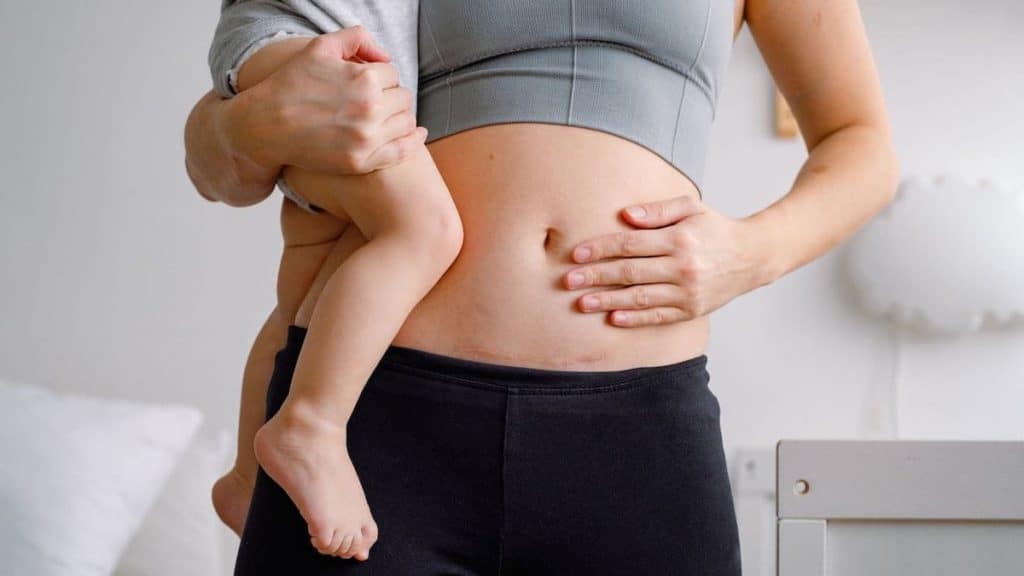
Following competition, athletes need support to recover from the effects of expending large amounts of energy and making big physical demands on their muscles, ligaments, tendons and joints.
A 2019 study published in Science Advances found that pregnant women who are breastfeeding undergo levels of physical intensity similar to those that marathon runners experience during a race every day. Labor and delivery is also a major event that you need to recover from. As a result, you need support during and after pregnancy, just like an athlete.
Physical therapy can help support you during and after pregnancy. Through regular muscle-training exercises, spinal realignment and mobility and flexibility training, you could potentially shorten your recovery time.
5. Reduce Pelvic Floor Dysfunction
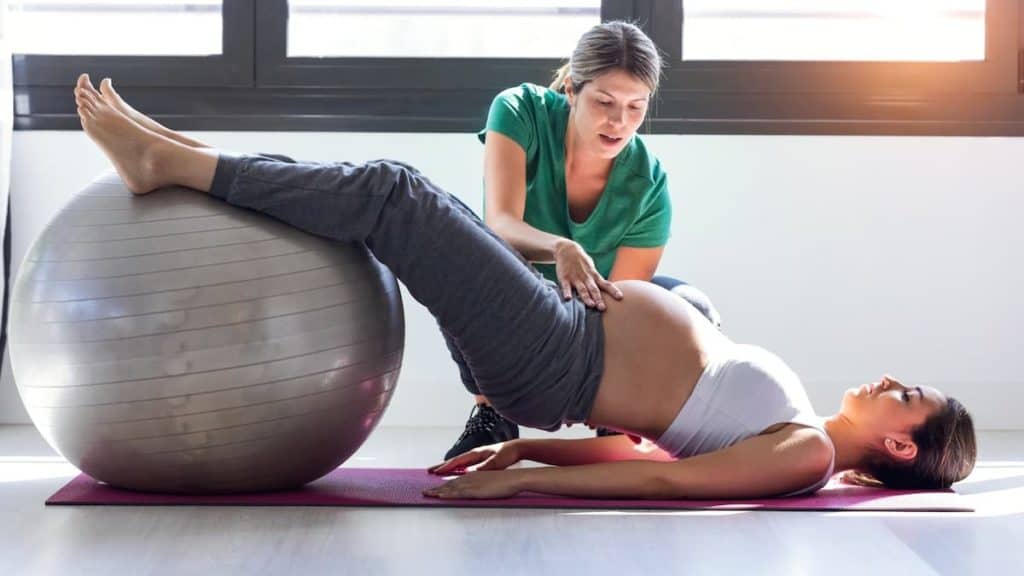
Your pelvic floor muscles are a group of muscles that support your bladder and reproductive organs. During pregnancy, these muscles stretch and grow weaker. Research indicates that as many as 40% of people experience pelvic floor dysfunction during pregnancy, and many more develop it following labor and delivery. Some symptoms include:
- Stress incontinence
- Problems fully emptying your bladder
- Increased urination
- Discomfort in the tailbone, lower back, abdomen or pelvis
- Pain during sexual intercourse
- Bowel problems
- Pelvic organ prolapse, when the bladder or uterus drops, putting pressure on the vagina
Physical therapy can help tone pelvic muscles to help you regain function and diminish symptoms of dysfunction. A physical therapist can teach you exercises that target these muscles to perform daily. They may also perform manual techniques to enhance muscle tone. Biofeedback and muscle reeducation therapies may also be beneficial.
6. Enhance Your Sleep
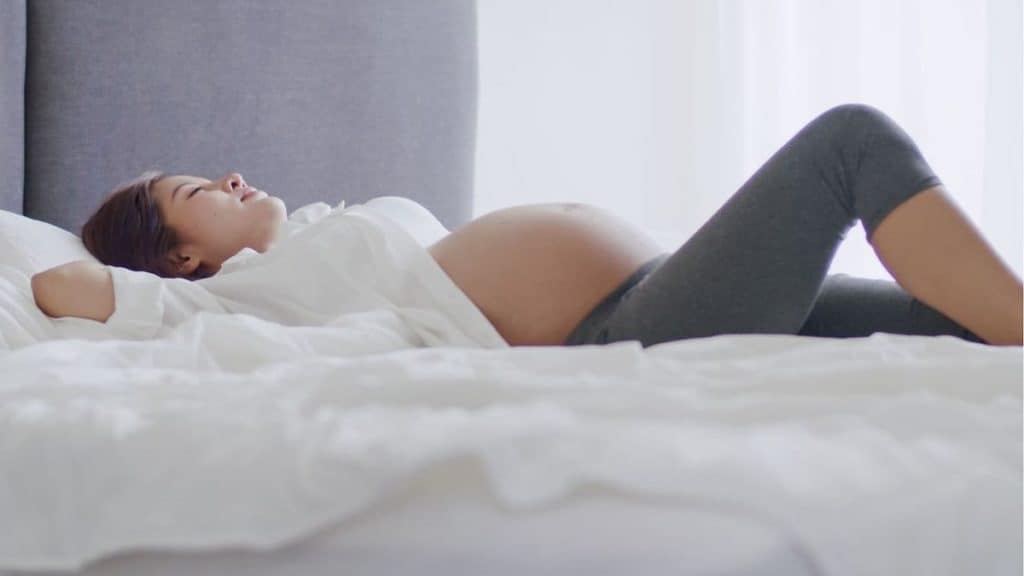
Expectant parents usually expect sleepless nights after their babies are born, but many pregnant people are surprised to experience sleep disturbances during pregnancy. Overall, an estimated 76% of pregnant people experience a lack of sleep, poor sleep quality, feeling drowsy during the daytime and waking up frequently at night during the first seven months of pregnancy. By month eight, the prevalence rises to 84%.
Sleep problems due to pregnancy can have many causes. One common culprit is change in body shape. With your growing belly, you may struggle to find a comfortable position to rest in. This is why healthcare providers often recommend using a wedge pillow behind your back and another pillow between your knees while pregnant.
Physical therapy can also be highly beneficial for addressing pregnancy-related sleep issues. Spinal alignments can reduce pressure to help you rest in a more comfortable position. Exercise can also allow you to relax and unwind, so you'll fall asleep more easily.
7. Ease Other Pregnancy Symptoms
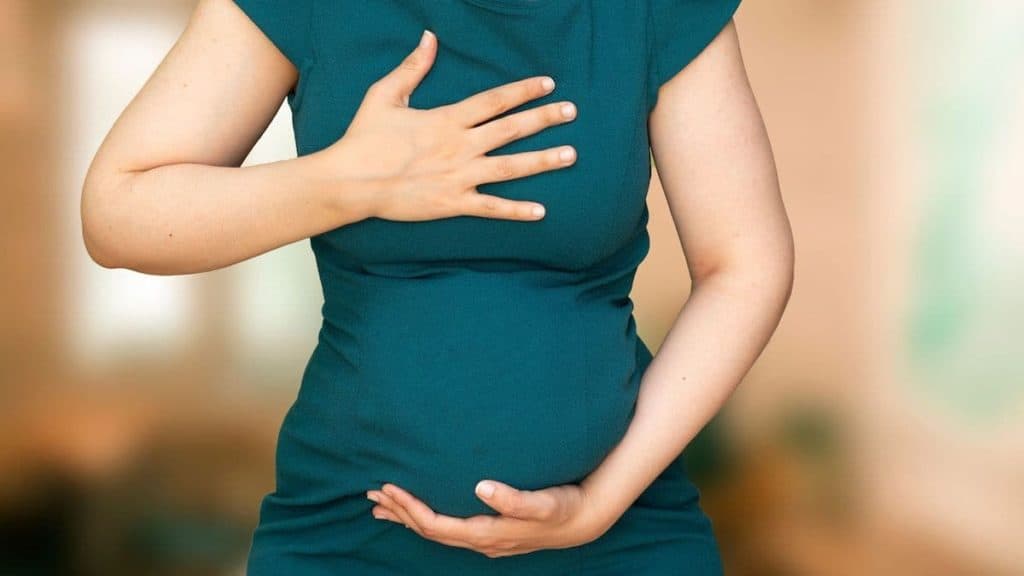
With the right treatment plan, physical therapy can address many of the common symptoms of pregnancy. If you're experiencing a loss of mobility due to swelling, joint pain or loosening of the joints, a physical therapist can help you regain function through exercise. Musculoskeletal pains beyond the back may be eased by the right exercises and therapies.
Even problems such as heartburn and nausea may be alleviated by correcting spinal misalignment and working to improve your posture. Simply put, a physical therapist can serve as an important member of your care team during and after pregnancy, devising strategies and administering interventions that can help you feel your best and complete your daily activities with greater ease.
Start Your Pregnancy Journey Off Right With Northeast Spine and Sports Medicine
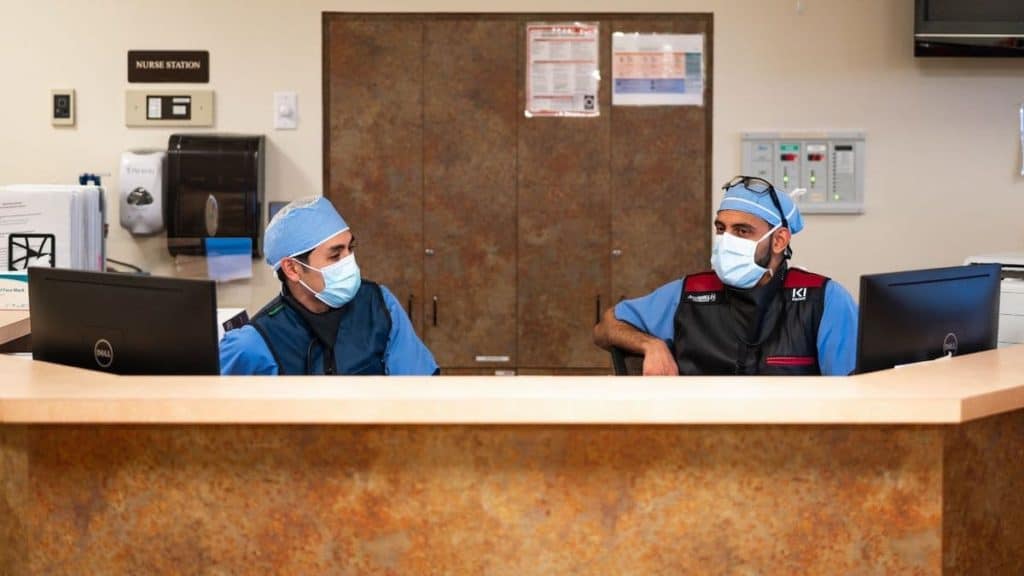
At Northeast Spine and Sports Medicine, we specialize in chiropractic care and physical therapy for pregnant people. No matter how far along you are in your pregnancy journey, our prenatal physical therapists and pregnancy chiropractors are here to help. Learn more about our physical therapy services, or contact us today to schedule a consultation and get on the path to a more comfortable pregnancy.
